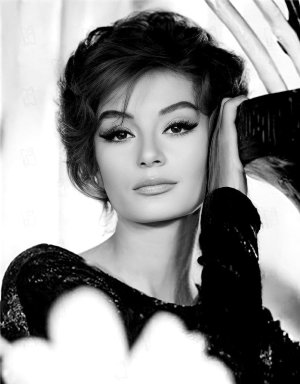This review may contain spoilers
A Victim Framed as a Villain (A story of Hypocrisy and Injustice)
At first glance, Dashing Youth looks like a classic wuxia drama — all about honor, brotherhood, and justice in a world of martial heroes. But if you dig deeper, the show reveals something much darker: a world full of hypocrisy, where those in power manipulate these ideals to keep control, and innocent people suffer because of it.
The character who best shows this contradiction is Ye Dingzhi (originally Ye Yun). He starts off as a loyal friend but ends up branded as a traitor and enemy. However, his story is really about a man who’s been betrayed by the system he trusted. His family is wrongly accused and executed, and many of his supposed friends either turn their backs or stay silent. He’s left isolated, without a place to belong or anyone to believe his truth.
What’s tragic is that the system that destroyed Ye Dingzhi never admits its mistake or tries to fix it. Instead, they treat him like a villain when he fights back, never offering him a chance to clear his name. He isn’t a villain — he’s a victim of injustice.
Yi Wenjun’s story is just as heartbreaking and reveals even more about the drama’s failures. She survives sexual violence, one of the most serious themes the show touches on. But instead of really exploring her trauma or giving her a strong voice, the drama mostly sidelines her story. Her pain is acknowledged, but it never feels fully real or addressed properly. Like Ye Dingzhi, she becomes a symbol of the suffering the world ignores.
Throughout the show, hypocrisy runs deep. Characters talk about loyalty and righteousness but only act on those values when it suits them. Leaders claim to stand for honor but secretly manipulate others. Friends swear brotherhood but abandon each other for political gain. Even the main hero, Baili Dongjun, gets away with mistakes, while Ye Dingzhi and Yi Wenjun are punished for fighting for justice the only way they can.
The message is clear: the powerful get away with anything, and the powerless are erased or used as examples of failure.
Visually and in terms of world-building, Dashing Youth shows potential. But emotionally and thematically, it lacks the courage to ask the hard questions:
What happens when justice only applies to the privileged? What do honor and loyalty really mean if those who preach them don’t live by them? What about those who get left behind like Ye Dingzhi and Yi Wenjun — when the system fails them?
The show avoids these questions and moves on, leaving its most important characters trapped under politics and empty promises.
Dashing Youth isn’t without good moments — it has strong visuals, a couple of action, and interesting characters who were played by some amazing actors. But it also shows serious moral failures. It tells a story about justice while letting injustice win. It gives us heroes but doesn’t really show true heroism. And with Ye Dingzhi, it gives us victims, then punishes them for surviving.
It’s not that the show lacked ambition — it’s that it didn’t hold itself or its characters accountable.
The character who best shows this contradiction is Ye Dingzhi (originally Ye Yun). He starts off as a loyal friend but ends up branded as a traitor and enemy. However, his story is really about a man who’s been betrayed by the system he trusted. His family is wrongly accused and executed, and many of his supposed friends either turn their backs or stay silent. He’s left isolated, without a place to belong or anyone to believe his truth.
What’s tragic is that the system that destroyed Ye Dingzhi never admits its mistake or tries to fix it. Instead, they treat him like a villain when he fights back, never offering him a chance to clear his name. He isn’t a villain — he’s a victim of injustice.
Yi Wenjun’s story is just as heartbreaking and reveals even more about the drama’s failures. She survives sexual violence, one of the most serious themes the show touches on. But instead of really exploring her trauma or giving her a strong voice, the drama mostly sidelines her story. Her pain is acknowledged, but it never feels fully real or addressed properly. Like Ye Dingzhi, she becomes a symbol of the suffering the world ignores.
Throughout the show, hypocrisy runs deep. Characters talk about loyalty and righteousness but only act on those values when it suits them. Leaders claim to stand for honor but secretly manipulate others. Friends swear brotherhood but abandon each other for political gain. Even the main hero, Baili Dongjun, gets away with mistakes, while Ye Dingzhi and Yi Wenjun are punished for fighting for justice the only way they can.
The message is clear: the powerful get away with anything, and the powerless are erased or used as examples of failure.
Visually and in terms of world-building, Dashing Youth shows potential. But emotionally and thematically, it lacks the courage to ask the hard questions:
What happens when justice only applies to the privileged? What do honor and loyalty really mean if those who preach them don’t live by them? What about those who get left behind like Ye Dingzhi and Yi Wenjun — when the system fails them?
The show avoids these questions and moves on, leaving its most important characters trapped under politics and empty promises.
Dashing Youth isn’t without good moments — it has strong visuals, a couple of action, and interesting characters who were played by some amazing actors. But it also shows serious moral failures. It tells a story about justice while letting injustice win. It gives us heroes but doesn’t really show true heroism. And with Ye Dingzhi, it gives us victims, then punishes them for surviving.
It’s not that the show lacked ambition — it’s that it didn’t hold itself or its characters accountable.
Was this review helpful to you?









